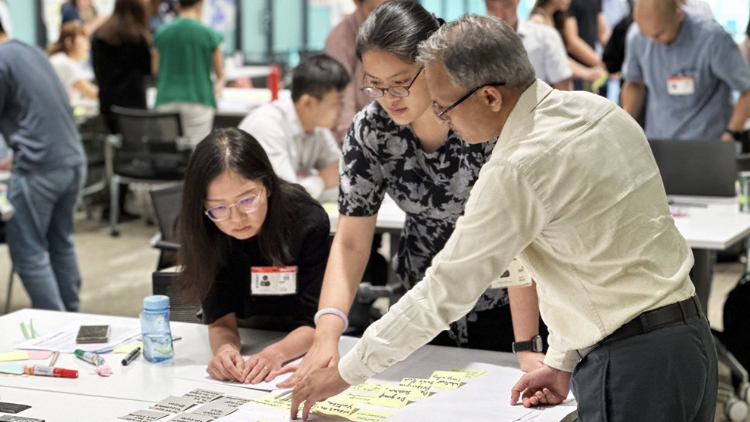
Singapore's national HealthTech agency, Synapxe, has introduced the GenAIus Challenge, an initiative designed to encourage public healthcare professionals to leverage the potential of Generative AI (GenAI) to address everyday challenges within the healthcare ecosystem.
What is GenAI?
GenAI is a type of artificial intelligence that can generate new data, such as text, code, or images. In the context of healthcare, GenAI has the potential to streamline workflows, improve communication, and personalise patient care.
The GenAIus Challenge: Fostering innovation to solve healthcare challenges
The GenAIus Challenge is a three-stage initiative that provides a platform for healthcare professionals, including doctors, nurses, and administrators, to collaborate and develop GenAI-powered solutions for real-world healthcare problems or use cases.
The first stage involved participation in Ideation Workshops facilitated by tech industry leaders like Amazon Web Services (AWS), Avanade & Microsoft, and Google Cloud. These workshops equipped participants with the knowledge and tools required to develop GenAI solutions. There will be brainstorming sessions where these tech industry leaders will dive deep with participants to explore how GenAI can solve public healthcare challenges.


Shortlisted use cases will progress to the development of Minimum Viable Products (MVPs), essentially prototypes of the proposed GenAI solutions. Finally, the most promising MVPs may be deployed in real-world healthcare settings, allowing for real-time assessment of their impact on patient care.
You would be able to transform your ideas into something real and make a difference to the real-world healthcare settings.
Quoting Charmaine Sim, Advanced Practice Nurse (Critical Care), National University Hospital, at the ideation workshop by Google Cloud:
“Our goal through the GenAIus Challenge, was to enhance patient care in the intensive care unit (ICU) by exploring two predictive tools powered by GenAI. The first tool would assist nurses in determining the timing and mode of dialysis a patient needs, while the second tool would empower nurses with data-driven insights to make better informed decisions on when to extubate (i.e. to remove a tube that has been put into the body) patients.
The ideation workshop hosted by Google Cloud prompted us to think deeper on how we can further develop and scale up our use cases, to potentially impact more ICUs or even institutions at large.”
